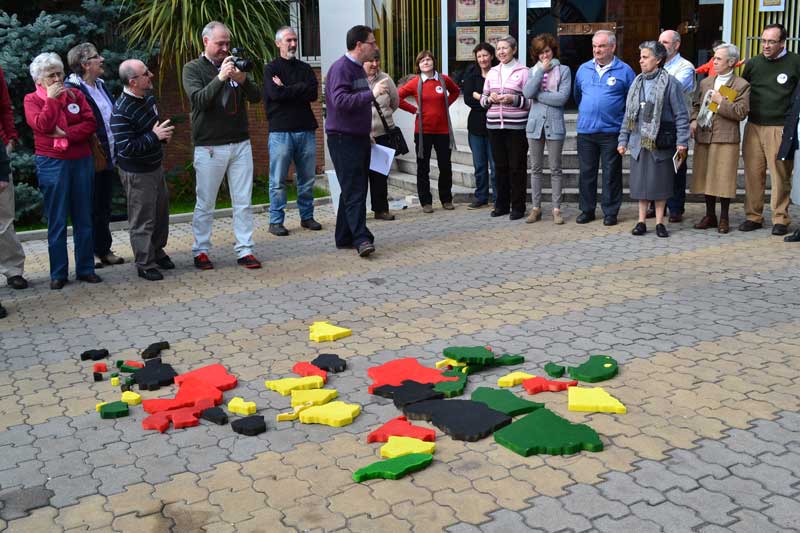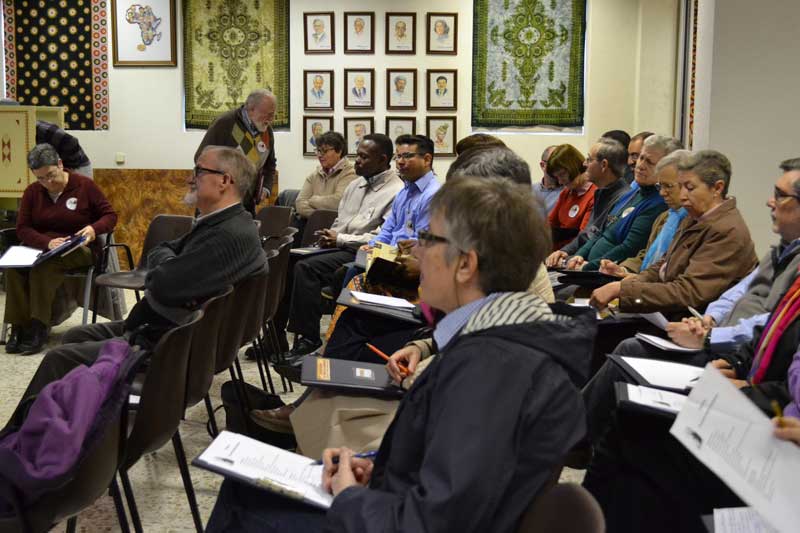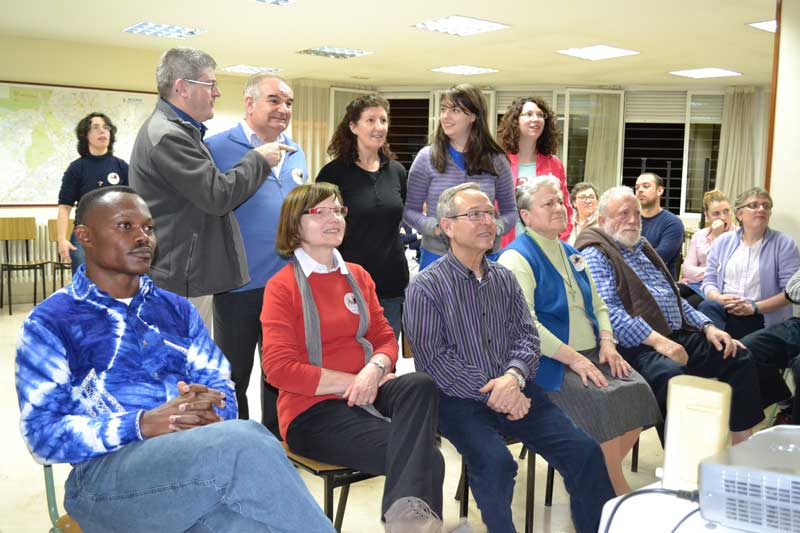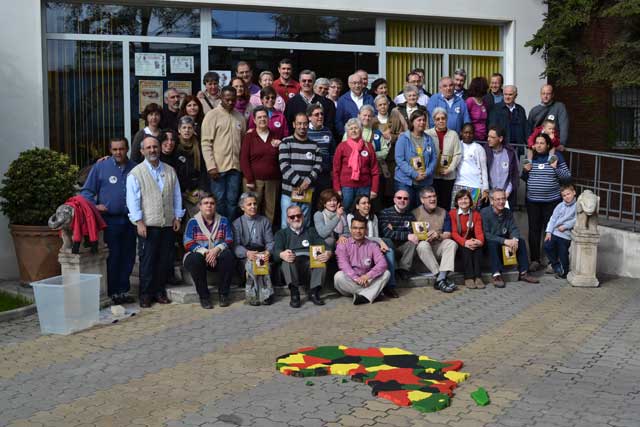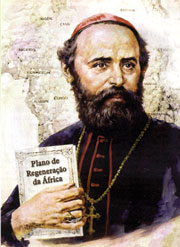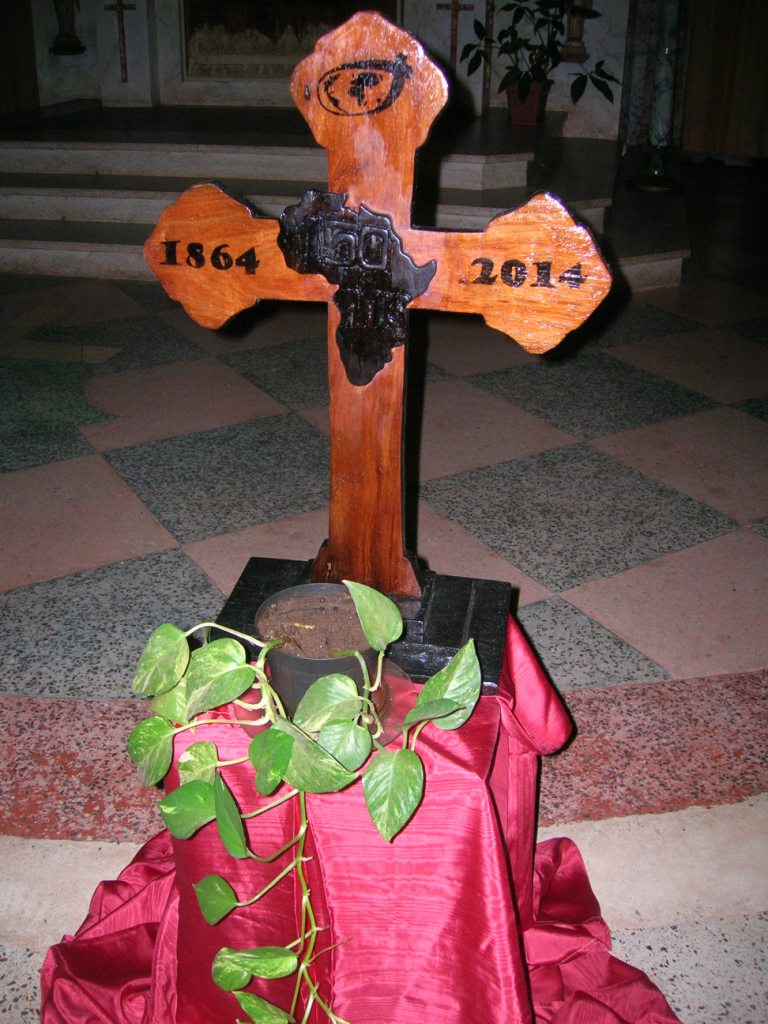I think the more we feel challenged, more can be the conviction to accept the challenge.
We have always known that the presence of the laity in the evangelizing mission of Daniel Comboni was a reality since the beginning of his ministry. However, feel saying the speaker of “work shop” about the PLAN FOR REGENERATION OF AFRICA, Joaquim Valente (Comboni missionary) to be a fundamental intuition of the Plan, the Comboni Family: Religious and Lay, the CHARISMA is as a tree with branches that if any of these are separated from said tree, and ceases to have life the whole tree is affected.
Fidelity to our Comboni charism keeps questioning and invites us to live more deeply the desire to grow in union between the different BRANCHES of the Comboni Family; we’re waking each other through mutual understanding.
Personally, and I have not been the only one, I have noted with great joy at this meeting that I already knew all the Comboni Lay Missionaries, unthinkable just a few years ago. This knowledge creates bonds of friendship, love and understanding of the different lifestyles that lives the Comboni Family.
With great joy I have experienced this encounter; 20 years lived in Uganda have enriched me at level of collaboration with other apostolic forces and have experienced the joy of union. The current Spanish situation can actually be more tiring this path of collaboration and union, but if in other continents and contexts we can cooperate even without having the same CHARISMA, aren´t we going to get it among the members of the Comboni Family?
I think that the unity challenges us in a same way: Comboni Missionary Sisters, Comboni Missionaries and Lay Comboni Missionaries. I also believe that the way forward is listening to the Word of God, listening to the greatness of the legacy of Comboni (Charisma) and listening to each of us to understand how we should be faithful to the novelty that each one brings and enrich at the present time in our history.
We have experienced the pride of having a Founder with intuitions (PLAN) so divine and human, and this has increased our desire to grow in unity. Logically, first of all being “THE CENACLE OF APOSTLES” Comboni wanted from us.
Personally I think we have to face a great challenge: Are we called to cover all fields of apostolate that we find around us? We have heard with satisfaction that being the CHARISMA a GIFT for implementing a particular aspect of the Kingdom of God, each task has its Charisma that complements the TOTALLY. Therefore we must continue to reflect for not wanting to cover all there is to do in the Church and in Society and make room for the others Charisma.
Encarnita Cámara Liébana. Comboni Missionary Sister
(Currently in Spain for the ministry of Missionary Animation)
We want to share with you the meeting of the Comboni Family, we had in Madrid, celebrating the 150th anniversary of the Plan of Comboni.
I must say that it exceeded all my expectations. In the beginning was the idea that it would be a formality within the activities planned for the event. The truth is that it was a beautiful and rich time in every sense, was noticeable that the spirit of Comboni was there updating its Plan, reminding us that we had to unite all our efforts and put our heart to serve the poorest and abandoned; that with different characteristics continue to be today at the “Africa’s” of our world. All this without losing sight of the crucified Christ who continue to suffer in all our brothers because of selfishness and injustice.
Fr Joaquim Valente was slowly reeled the PLAN OF COMBONI FOR THE REGENERATION OF AFRICA. This exhibition enlightened us and helped us to see what is our mission today as Comboni Family. Result of this listening and reflection shared a lot of ideas came to work as Comboni family serving the mission in different fields like: immigration, missionary animation, places of presence, mixed communities, mission today in Spain… plus what we are already sharing as Vocational Youth Pastoral, assemblies and celebrations.
Finally: We started and ended the meeting celebrating the Love around the Banquet Table as a real family, where children could not miss. A bless of God. We left with renewed heart willing to work with enthusiasm and passion for the mission.
Antonia and Felix. Comboni Lay Missionaries
Just a few days after the conclusion of the general meeting of the COMBONI FAMILY in Madrid, I keep remembering and echo the words and messages we received during those days. Aiming: look at Comboni missionary Plan, we have taken on the task of looking. Looking at ourselves, look at each other, looking at our missionary path, looking at our projects. I am delighted that once again today as yesterday, there are no “silver bullets” for the implementation and development of a mission plan. Are faith, brotherhood and perseverance at work, which have allowed our family to start, following the footsteps of our founder.
Comboni began in the name of God a missionary work and the progress of this work, it has been made from every Comboni (lay or religious). Together we have written a story that belongs to us. God has put each family member in the proper place and has wanted today as yesterday to continue the work for the implementation of the missionary plan of Comboni.
I am aware of having participated to an unprecedented event in our province and that puts us at the forefront in the way of a deep and sincere collaboration in the missionary task of the Church. Although not comes to an epochal change, we are facing a new perspective to see our mission.
No doubt, like me all those present, appreciate the valuable intervention made by Fr. Joaquim Valente who through his interventions facilitated the work of reflection. It was precisely in the group work, where we descended to our Comboni missionary walking in the province of Spain. Participation in the living from many of those present allowed us to realize the interest of each member of our family to implement the Comboni mission in the Church, which is still new and urgent.
We ended our meeting with a good taste but especially with the desire to continue taking steps that allow us to look with hope to the future of our mission. We found that in everyone the desire to continue our missionary pilgrimage for the poor and abandoned is latent: Legacy of Comboni.
Hector Manuel Peña. MCCJ




